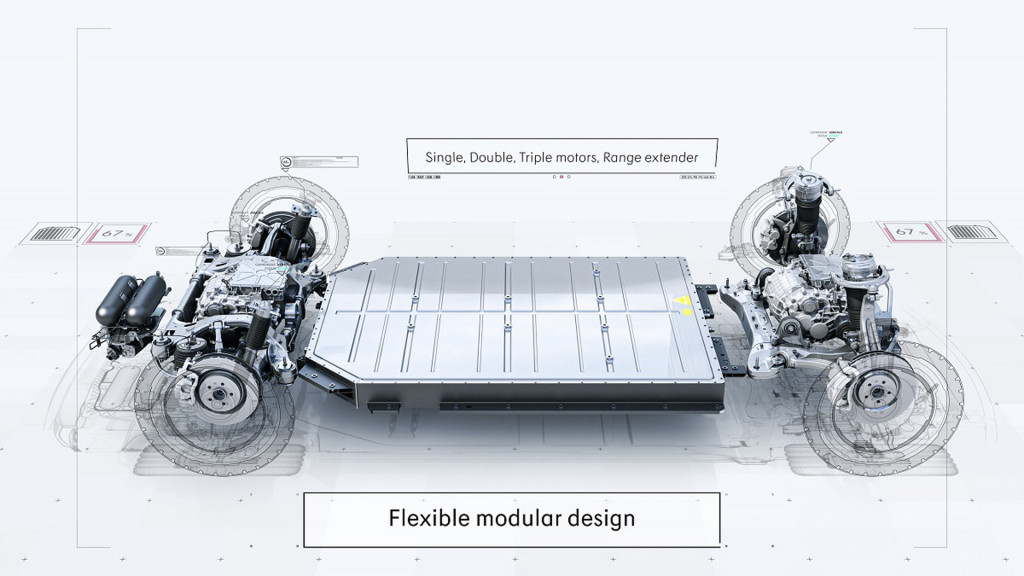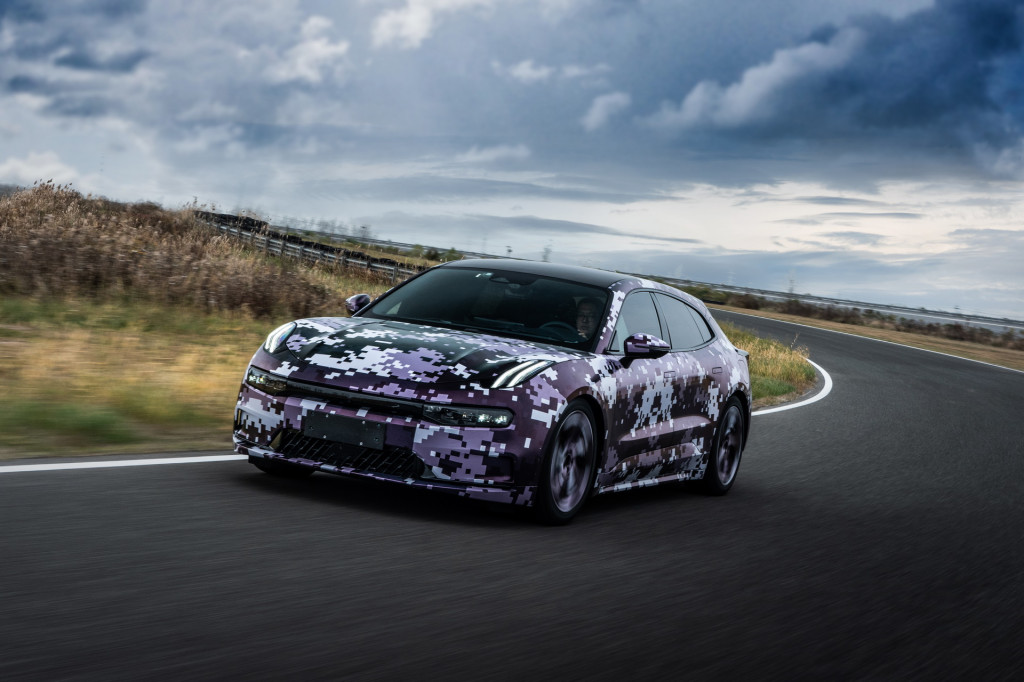Why would the search engine giant Baidu be embarking on an electric car project?
Regardless of the answer, Baidu's choice of Volvo parent Geely as the partner for the nuts-and-bolts of its car venture—while Baidu will develop the software—instantly gives the project the potential to span beyond China, given Geely’s connections across continents.
The two companies announced the establishment of a new strategic partnership—actually, in their terms, "a new electric car company"—Monday morning, confirming the new venture will make use of Geely's Sustainable Experience Architecture (SEA) platform that will underpin future electric vehicles.
By the sound of Geely’s description of the platform, provided last September when it previewed it in the Zero Concept, it could be a good fit.

Geely SEA (Sustainable Experience Architecture) modular EV platform
Geely said that it plans to supply the platform to other automakers, and also described it as “open source,” with the hardware flexibilities for single, dual, and three-motor layouts, as well as range extenders. Baidu will contribute intelligent driving capabilities, including its Apollo autonomous driving and Baidu Maps.
The project appears to be moving quickly within Geely, as last month it already advanced that vehicle to the prototype stage, calling it the Zero EV, with a 435-mile range and an 800-volt battery pack that it claims won’t have power degradation for the first 10% of its 1.24-million-mile lifespan.

2022 Lynk & Co. Zero EV prototype
The Baidu project was first reported by Reuters last month, citing inside sources, and at that time the company was said to be shopping around for contract manufacturing partners. A separate Reuters report last week spurred early reports of this partnership.
Baidu isn’t completely new to cars and mobility. It has an autonomous taxi service called Apollo Go that operates in several cities, as a testbed for its Apollo self-driving platform. And it’s not the only Chinese tech company to become interwoven with electric and autonomous vehicles. The e-commerce giant Alibaba, for instance was an early investor in Xpeng, and Alibaba has a partnership with China’s SAIC.
With news of this potential partnership breaking on the same day as a potential one between Hyundai and Apple, it just goes to show that there may be many more rounds of big tech and automakers makers teaming up.
NOTE: This piece is an update of one originally published January 8, 2020—edited to reflect the formal announcement of the partnership.













